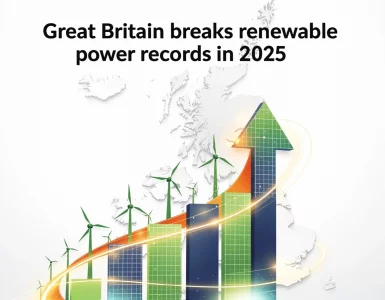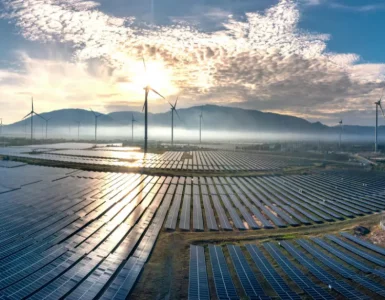The U.S. Department of Energy (DOE) announced on October 1 the cancellation of 321 financial awards supporting 223 energy projects, representing a total of $7.56 billion in federal funding. DOE officials stated that these projects “did not adequately advance the nation’s energy needs, were not economically viable, and would not provide a positive return on investment of taxpayer dollars.”
The funding cuts span projects across 17 states, including California, Colorado, Connecticut, Delaware, Hawaii, Illinois, Maryland, Massachusetts, Minnesota, New Hampshire, New Jersey, New Mexico, New York, Oregon, Vermont, and Washington. According to Russ Vought, director of the U.S. Office of Management and Budget (OMB), all but two of these states are currently governed by Democrats.
The terminated awards were originally issued by multiple DOE offices, including the Offices of Clean Energy Demonstrations (OCED), Energy Efficiency and Renewable Energy (EERE), Grid Deployment (GDO), Manufacturing and Energy Supply Chains (MESC), Advanced Research Projects Agency-Energy (ARPA-E), and Fossil Energy (FE). These offices fund a wide range of projects spanning renewable energy development, energy efficiency, grid modernization, and advanced energy research.
The decision comes amid ongoing congressional discussions regarding the 2026 Energy and Water Development appropriations bill, which proposes reductions in funding for programs such as ARPA-E and the DOE Loan Programs Office, both instrumental in supporting clean energy innovation.
DOE Secretary Chris Wright emphasized the importance of fiscal responsibility in a statement: “On Day 1, the Energy Department began the critical task of reviewing billions of dollars in financial awards, many rushed through in the final months of the previous administration with inadequate documentation by any reasonable business standard. President Trump promised to protect taxpayer dollars and expand America’s supply of affordable, reliable, and secure energy. Today’s cancellations deliver on that commitment. Rest assured, the Energy Department will continue reviewing awards to ensure that every dollar works for the American people.”
The terminations follow the May 2025 issuance of a Secretarial Memorandum titled “Ensuring Responsibility for Financial Assistance,” which established new DOE policies for evaluating financial awards. The memorandum authorized DOE program offices to request additional documentation from awardees and mandated case-by-case review of financial assistance to ensure alignment with national energy priorities.
Award recipients have a 30-day window to appeal termination decisions. Several recipients have already begun the appeals process. DOE has not disclosed the specific projects affected, but the agency has indicated that the canceled projects encompass a mix of renewable energy, energy storage, and infrastructure initiatives.
Industry and policy analysts have noted that the review and subsequent cancellations highlight the tension between fiscal oversight and support for innovation in the energy sector. While some argue the move ensures more efficient use of taxpayer funds, others caution that abrupt funding cuts could delay critical research and infrastructure development, particularly in the renewable energy sector.
The DOE’s decision underscores the federal government’s ongoing scrutiny of large-scale energy spending and reflects the Trump administration’s broader focus on cost efficiency and strategic prioritization in the energy portfolio. Observers expect further announcements as DOE continues its review of remaining projects and as Congress debates appropriations for fiscal year 2026.














Add comment